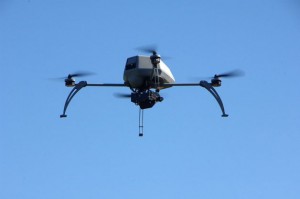Your Friendly Neighborhood Drone
Are There Legal Protections against the Dangerous or Illegal Use of Drones?
A bird? A plane? A remotely operated vehicle equipped with a high definition camera?! These days, it could easily be any of these.
 Drone technology is nothing new. The military has been utilizing it for years, and law enforcement has recently taken to the skies with them as well. In fact, these four-blade flying machines have taken off with nearly everyone, from journalists to real estate photographers to everyday hobbyists. Recently, Amazon has developed plans to deliver packages. Even more ambitiously, Facebook intends to launch drones that will provide Internet access to the most rural regions of the planet.
Drone technology is nothing new. The military has been utilizing it for years, and law enforcement has recently taken to the skies with them as well. In fact, these four-blade flying machines have taken off with nearly everyone, from journalists to real estate photographers to everyday hobbyists. Recently, Amazon has developed plans to deliver packages. Even more ambitiously, Facebook intends to launch drones that will provide Internet access to the most rural regions of the planet.
Without launching into the many Orwellian implications at issue, we must consider the very practical question: how should the legal system monitor the use of drones?
When drones first came onto the law enforcement scene, Congress ordered the Federal Aviation Administration (FAA) to come up with a policy by 2015 that would permit the use of drones in domestic airspace. Meanwhile, efforts to require a warrant for law enforcement to use a drone or to mitigate data retention by these drones to a level of reasonable suspicion have largely fallen on deaf ears. A few states like, Utah, Minnesota, and New Hampshire, have made an effort to outlaw warrantless drone surveillance. Others, such as California, have been slow to consider the potential harm of unwarranted, potential mass surveillance of its 39 million residents.
In addition to privacy issues, there is a growing concern that consumers will use drones for dangerous or illegal purposes. Who will monitor the use of consumer drones? According to judicial responses, that question is not be as cut and dry as the federal government may have thought.
In a recent federal court decision, a judge struck down an FAA effort to cite a drone user $10,000 for flying his drone over the University of Virginia, filming it with a high-definite camera that is affixed to the drone, and then using that video for commercial purposes. The court ultimately decided the FAA did not have authority over these types of unmanned aircraft and their commercial use and dropped the fine.
For the time being, local law enforcement is responsible for the task of determining the permissible use for drones. This has the potential to cause enforcement that runs afoul of several complicated legal doctrines, including the First Amendment.

Comments